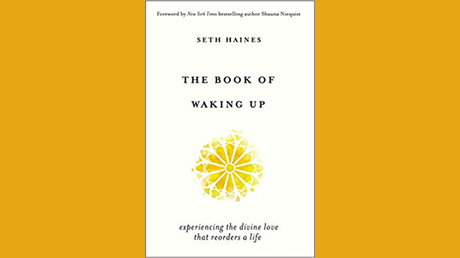
One-on-One with Seth Haines on Experiencing Divine Love
If we confess our disordered attachments, “he who is faithful and just will forgive us our sins and cleanse us from all unrighteousness” (1 John 1:9).

Ed: Your first book was your story of finding sobriety. What is your new book, The Book of Waking Up, about? Do you see your journey to sobriety differently than you used to?
Seth: I see my sobriety journey so much differently now, six years into a season of being undrunk. Coming Clean was a real-time journal, one I wrote in the anxious process of quitting the bottle. In those early days, I wasn’t sure whether to call myself an alcoholicor to use more palatable language like “I’m dependent” or “I have a drinking problem.”
As I walked deeper into sobriety, I realized the precise language around my relationship with alcohol mattered less than the truth of that relationship. The truth was, I was using alcohol to numb my pain instead of opening myself to the divine love and healing of God.
Now, I don’t worry so much about monikers and nomenclature. I don’t apply a “do or do not” definition to sobriety, either. Instead, I ask myself whether I’m marked by inner sobriety, or the sobriety characterized by connection with God’s divine love above all else.
Ed: You write that we are all “people of coping mechanisms ranging from the illegal to the socially acceptable.” Why do you think we all have addictions of some sort? What do they have in common? And are all addictions equal?
Seth: Addiction—it’s such a tricky word, isn’t it? Through my general observation of human nature, though, I’ve come to believe we all tend to have some kind of coping mechanism, something we use when the pain comes calling.
Some use booze or oxycodone when they have emotional pain. Some turn to over-consumption (whether shopping or eating) or over-working ...
from Christianity Today Magazine https://ift.tt/2ERbjpK


0 Response to "One-on-One with Seth Haines on Experiencing Divine Love"
Post a Comment